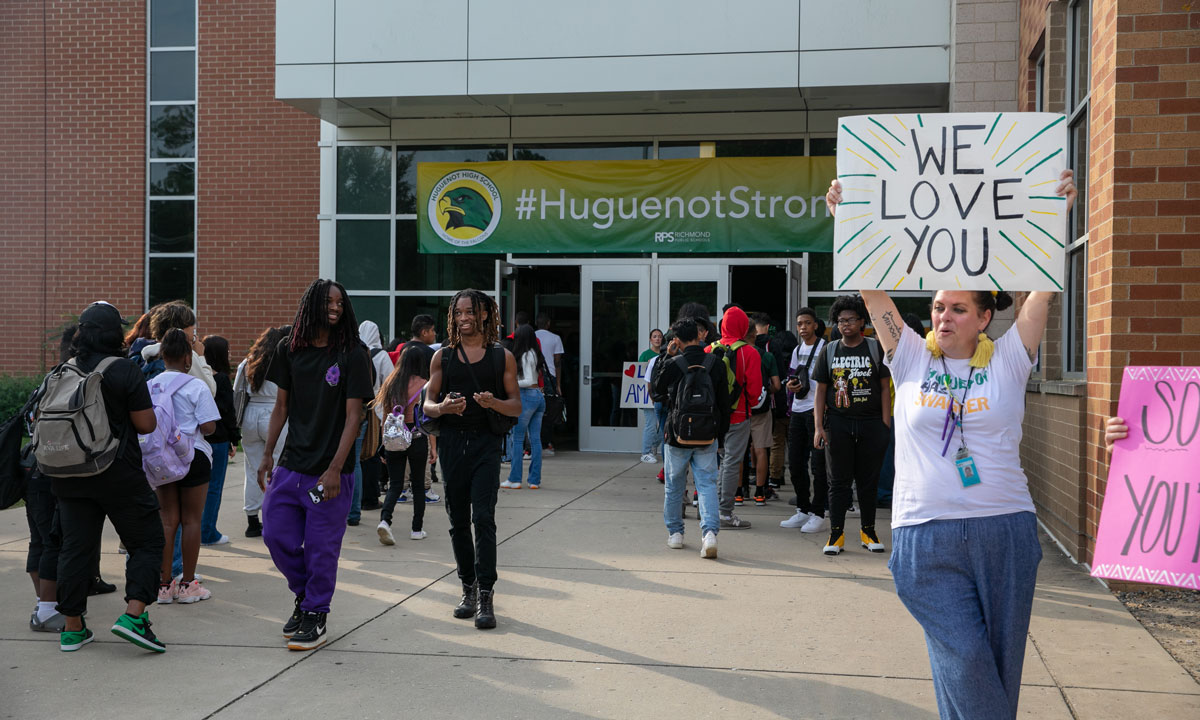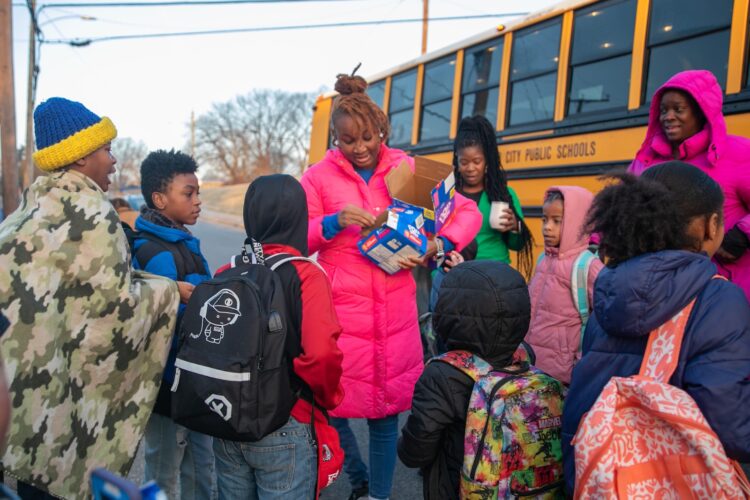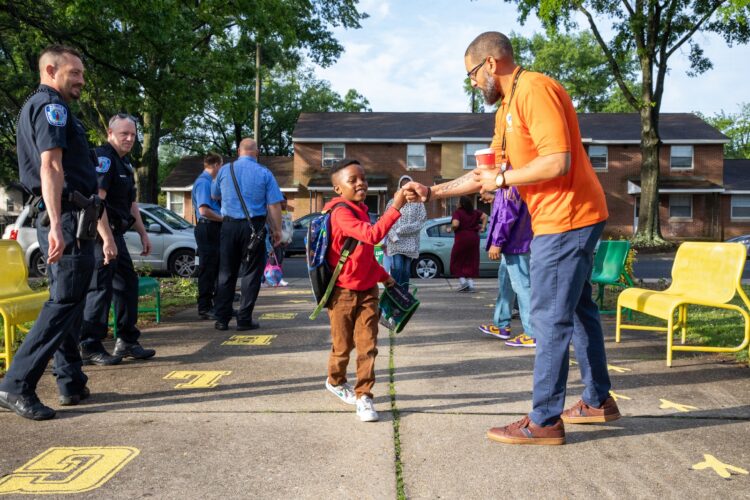With Poll Showing 1 in 4 Kids Is Chronically Absent, How 1 District Is Reaching Out
Richmond Public Schools uses home visits, financial help and a 'We Love You' campaign to engage families and make sure they know when kids miss class.

Get stories like this delivered straight to your inbox. Sign up for The 74 Newsletter
Officials at Virginia’s Richmond Public Schools knew something had to change when nearly 40% of students were chronically absent in the wake of the pandemic.
Dozens of seats remained empty when classrooms fully reopened in the 2021-22 school year. Approaches to absenteeism in the 22,000-student district were failing, and administrators were forced to rethink how they could bring children back to school.
The job was assigned to Shadae Harris, the district’s chief engagement officer. Harris and other staff decided to prioritize family engagement instead of using punitive measures — such as referrals to the juvenile justice system — to increase attendance.
“In order to really improve student attendance, we had to make sure that we were designing a system of engagement that really put families at the center,” Harris said.
Lack of family engagement is a national issue, as nearly 1 in 4 students are chronically absent. A recently released national poll found that many parents don’t think chronic absenteeism is a problem and are unaware of how often their child misses class.
The poll, released in May by the National Parents Union, surveyed roughly 1,500 public school parents around the U.S.

“They haven’t been told [chronic absenteeism] is a problem,” said Keri Rodrigues, the organization’s co-founder. “They haven’t really defined what it is for them, so they’re not seeing that this is a major issue.”
The poll, which was distributed to parents in March, showed that 16% of respondents had a child who missed six to 10 days of school during the 2023-24 school year. Another 4% said their child missed 10 to 15 days, and 3% said their child missed more than 15 days.
Still, 82% of parents said they were unsure about whether chronic absenteeism existed at their child’s school or didn’t think it was widespread.
Students are considered chronically absent when they miss at least 10% of school, or roughly 18 days in most districts, according to Attendance Works, a national nonprofit. These students are more at risk for struggling academically, falling into poverty or dropping out of high school.
Only 8% of parents surveyed said they thought their child was absent more often than most students. Harris said the Richmond district found out through its own research and discussions with families that not only were parents unaware of what chronic absenteeism was, they didn’t think their children were skipping class as much as they actually were.
“You may have a family who thinks they’ve only missed three days, but it’s actually 13,” Harris said.
In response, Harris helped launch several family engagement initiatives in the 2021-22 school year. The district created an attendance dashboard on its website, and teachers began to make home visits to families who had absent children. So far, the district has completed more than 40,000 home visits.
Through “that building of trust, that prioritizing of relationships, we were finding out what the root causes were,” Harris said. “There were issues around health, medical needs, transportation and housing
When Richmond staff found that several families were living in motels because they couldn’t afford rental deposits, they secured grant funding to help those students get stable housing. More than 130 families have been moved to better accommodations through this program, Harris said.
The district deployed school officials to work with parents distrustful of the school system, calling them family liaisons instead of attendance officers, which implied discipline instead of cooperation. Harris created a “We Love You Here” campaign to help families feel supported instead of judged for their children’s absences.
If the district did need to get law enforcement involved because a student’s attendance failed to improve, court hearings were held in one of Richmond’s middle schools instead of at the courthouse.
Harris said the middle school’s gym would be filled with booths, each one offering a community resource or service.

“Instead of ordering [the families] to do something more punitive, [the judge] orders them to see every single service,” Harris said. “So they have a little card and they visit the service. Then the judge will give them a certain amount of days to improve attendance.”
The most common reason for absences in the parents’ union poll was physical illness, followed by medical or dental appointments, weather, family emergencies and vacation. When asked why they think students are chronically absent, nearly 30% of respondents said it’s because they don’t want to attend school. About 26% attributed absences to illness and 21% to parents who don’t care.
More than half of respondents — 56% — said parents should face legal consequences if their child misses too much school without an approved reason. But Rodrigues said people need to focus more on why students don’t want to come to school.
“The only thing that’s going to solve their problem in a meaningful way is getting to the reason why kids don’t want to be in the classroom,” she said. “Part of that is because of the mental health crisis and social anxiety. The other piece is that we don’t present compelling reasons for them to actually want to be there and create that [fear] that they’re going to miss something if they don’t show up every single day.”
In the poll, 11% of parents said making school more engaging or fun would improve attendance, while 8% said children should be given incentives for showing up and 6% said schools need to engage with parents more.
Harris said she feels family engagement was the biggest reason why Richmond Public Schools has improved its chronic absenteeism rate, which was at 25% during the 2022-23 school year and at the end of 2023-24 had dropped to 19%.
“If you prioritize your relationships with families and students, you’ll actually get the information you need to find out, like, what are the things that motivate them? What are the things that give them joy?” Harris said. “Families actually already know. We just have to be quiet and listen to them and help shift some of the power to them. Because they’re the experts of their children.”
Get stories like these delivered straight to your inbox. Sign up for The 74 Newsletter

;)
